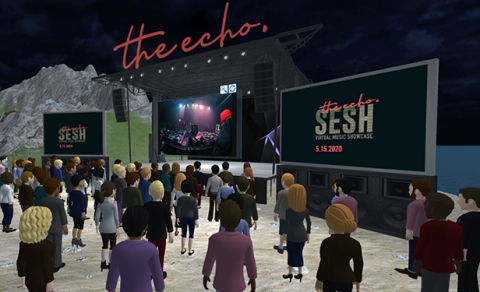5 Steps to Bring Back In-Person Events Safely

Ryan Costello, founder of Event Farm, has made a career off of bringing people together since graduating from Georgetown University. In more than 18 years as an event producer and experiential marketer, Costello has assisted the likes of Nike, Google, Yahoo, Microsoft, Adobe and JP Morgan Chase execute thousands of event experiences around the world.
Needless to say, he is eager to get back to business as usual. But Costello is concerned about how the industry revives itself. “There is this kind of pressure to hurry up and get back,” said Costello, whose company, Event Farm, was acquired by association management software company MemberSuite in 2019. “I don’t want to go out and have an event happen and take two steps backward. I’m really concerned we are moving too fast.”
 Among Costello’s points is that large scale events like the Super Bowl have the budgets and manpower to cover all the safety bases. But a group putting on a conference won’t have the same resources and could be vulnerable while the country and industry try to emerge from COVID-19’s stranglehold.
Among Costello’s points is that large scale events like the Super Bowl have the budgets and manpower to cover all the safety bases. But a group putting on a conference won’t have the same resources and could be vulnerable while the country and industry try to emerge from COVID-19’s stranglehold.
Event Farm has spent the better part of the past year creating virtual event campuses (like the one shown above) to keep companies connected. Here, Costello shares five steps he encourages event planners and organizers to follow when companies begin holding their events in person again.
1. Have a code of conduct: The basepoint for event professionals is the Centers for Disease Control and Prevention’s guidelines. But those change frequently and are applied differently depending on locality. Costello notes most events already had guidelines in place regarding security and data privacy. It’s just a matter of adapting, and communicating rules regarding masks, social distancing and other protocols. This way, a potential holdout — remember, everyone across the country has different views and perspectives on the pandemic — can be positively influenced by others to follow the rules at your event.
2. Sell the audience. It’s one thing to have a safety plan in place, but event organizers are going to need to convince attendees that they will feel comfortable traveling on-site to a gathering that will likely have a virtual component. “Don’t just tell me you have hand sanitizers and will put up signs,” Costello said. “Tell me what your communication plan is and what you’re asking other attendees to do.” There may be no such thing as over-communicating in this case, he added.
3. Don’t get caught up in the numbers. Safety is paramount, of course, but the amount of information presented by the CDC and other sources can be overwhelming. If you get too far in the weeds, “you’ll end up having paralysis by analysis,” as Costello put it. In other words, set your measures and work them into the event matrix and then go to work. “You can’t have it perfect — there is never going to a playbook,” he said.
4. Find the right venue. This piece of advice applies to pre-pandemic events but is more important than ever. You and your organization will have a set of priorities and need a site that can fulfill expectations. Are you planning for mostly outdoor space? What sort of ventilation are you really looking for? Just because many attendees will be vaccinated, a large group of people will not be eager to jump into tight quarters. “You’ll see warmer environments like Florida and California get an extraordinary amount of events,” said Costello, who lives in Santa Monica, California.
5. Use new tools. Technology is rapidly changing to meet needs — we’re way beyond registration systems. Costello prefers platforms (like Event Farm’s) with the ability to text message information in real-time to attendees in case there’s a change in transportation or any other variables. He also predicted apps verifying all vendors and staff, down to delivery personnel and volunteers, will be important for contract tracing and maintaining protocols. “We’re going to credential everyone,” he said.
Don’t miss any event-related news: Sign up for our weekly e-newsletter HERE and engage with us on Twitter, Facebook, LinkedIn and Instagram!


Add new comment